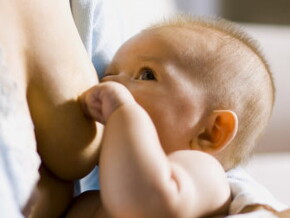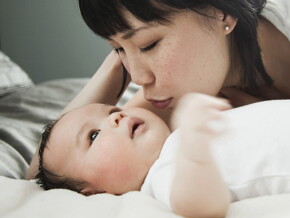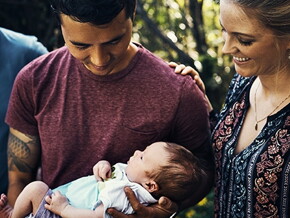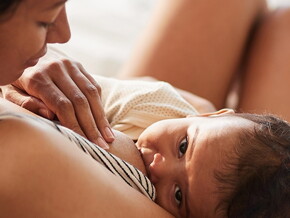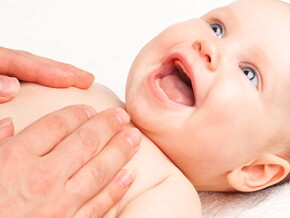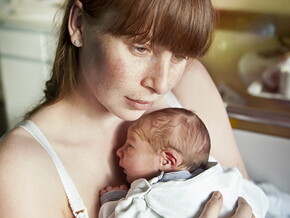
6 to 8 months baby
Article
Baby food allergies Vs intolerances—things to consider
Aug 14, 2024
3 mins
- Talk to your doctor if you have any concerns about your infant developing food allergies or intolerance.
- Be aware of the foods that cause food allergy most often, called common food allergens. These includes: Milk (and milk products); egg; peanut; tree nuts (e.g. almonds, cashews, walnuts); Soy; Seafood (e.g. fish, shellfish, crustaceans); wheat; sesame.
- Don’t delay introducing any foods to try to prevent allergy when you start introducing solid foods to your baby at around 6 months.
- When introducing common food allergens, offer one at a time and no more than one per day in small amounts so you can spot an allergic reaction more easily.
- Once an allergenic food is introduced and your child is tolerating it, try and include it on a regular basis in your child’s usual diet, as this can minimize the risk of a future allergy.
- Signs of allergies in babies can occur straight after a food is eaten, or several hours later.
- Be aware of the common allergy signs, for example: swollen face, lips or tongue, wheezing or difficulty breathing, itchy skin, throat, tongue, or eyes, rash/hives, coughing, diarrhea, vomiting, and a runny or blocked nose.
- A severe allergic reaction, or anaphylaxis, is serious so it’s worth knowing what to do next.
- If you suspect your baby is having an allergic reaction, try to stay calm and seek medical help as soon as you realize something is wrong.
- If your child is showing signs of a severe allergic reaction or anaphylaxis, call the emergency services immediately.
- If your child has a food allergy, make sure you read food labels carefully and avoid any foods where the ingredients are unclear.
- A food intolerance is not an allergy and is not caused by an immune reaction. Food intolerance will cause discomfort, but it’s not dangerous to your child.
- Remember that signs of intolerances in babies can appear more slowly, making them harder to diagnose.
- Look out for intolerance signs, for example: bloating, loose stools, gas or other symptoms after eating a specific food. Even though intolerance is not dangerous, you may want to avoid foods that cause discomfort.
- The best thing to do if you’re concerned that your baby may have a food allergy or intolerance is to speak to your doctor.
- Learn more about baby allergies and intolerances here.
Sources
Canadian Paediatric Society. Caring for Kids. Food Allergy vs. Food Intolerance: What is the difference and can I prevent them? https://www.caringforkids.cps.ca/handouts/healthy-living/food_allergies_and_intolerances Accessed September 2020.
HealthLinkBC. Reducing Risk of Food Allergy in Your Baby. https://www.healthlinkbc.ca/healthy-eating/reducing-baby-food-allergy-risk Accessed September 2020.










